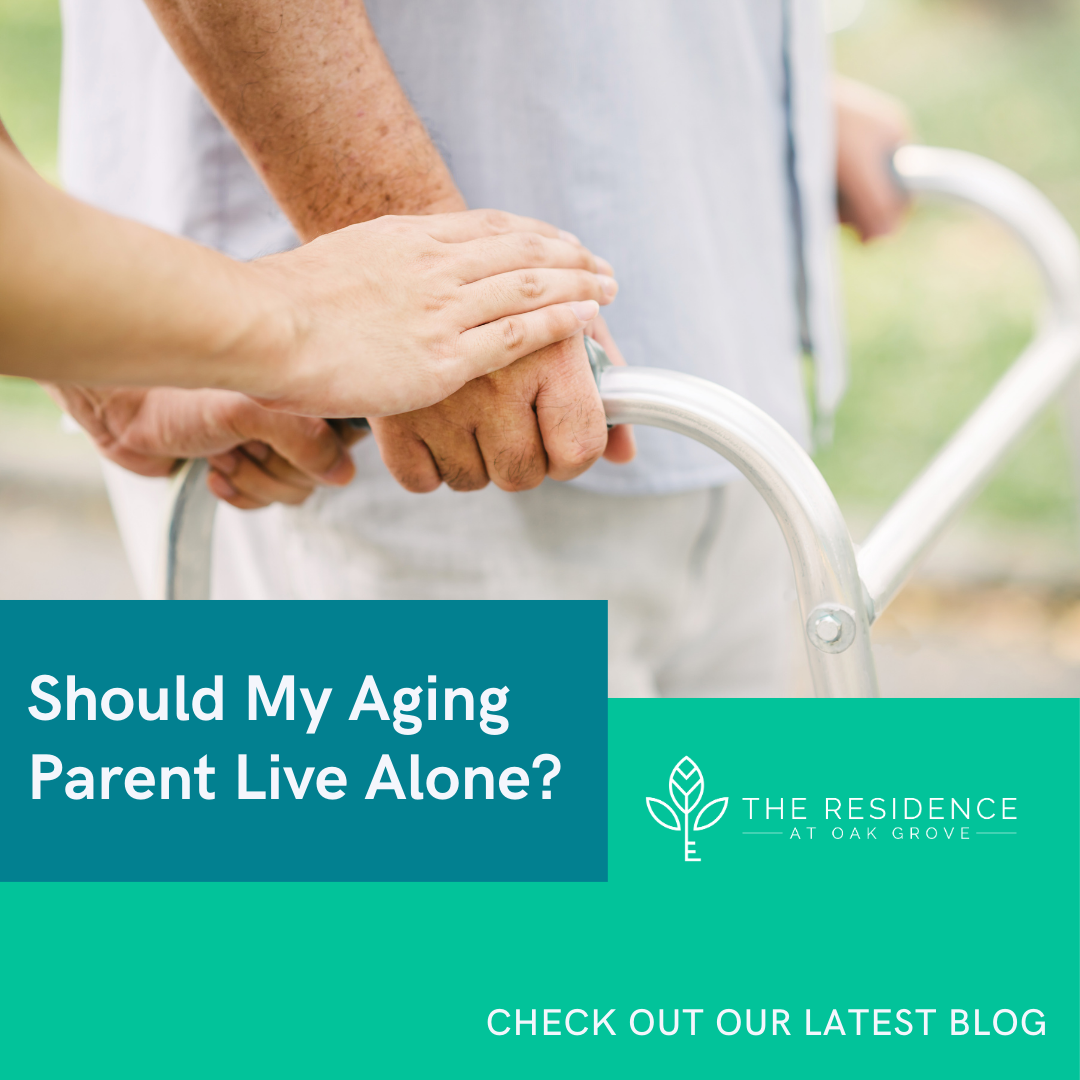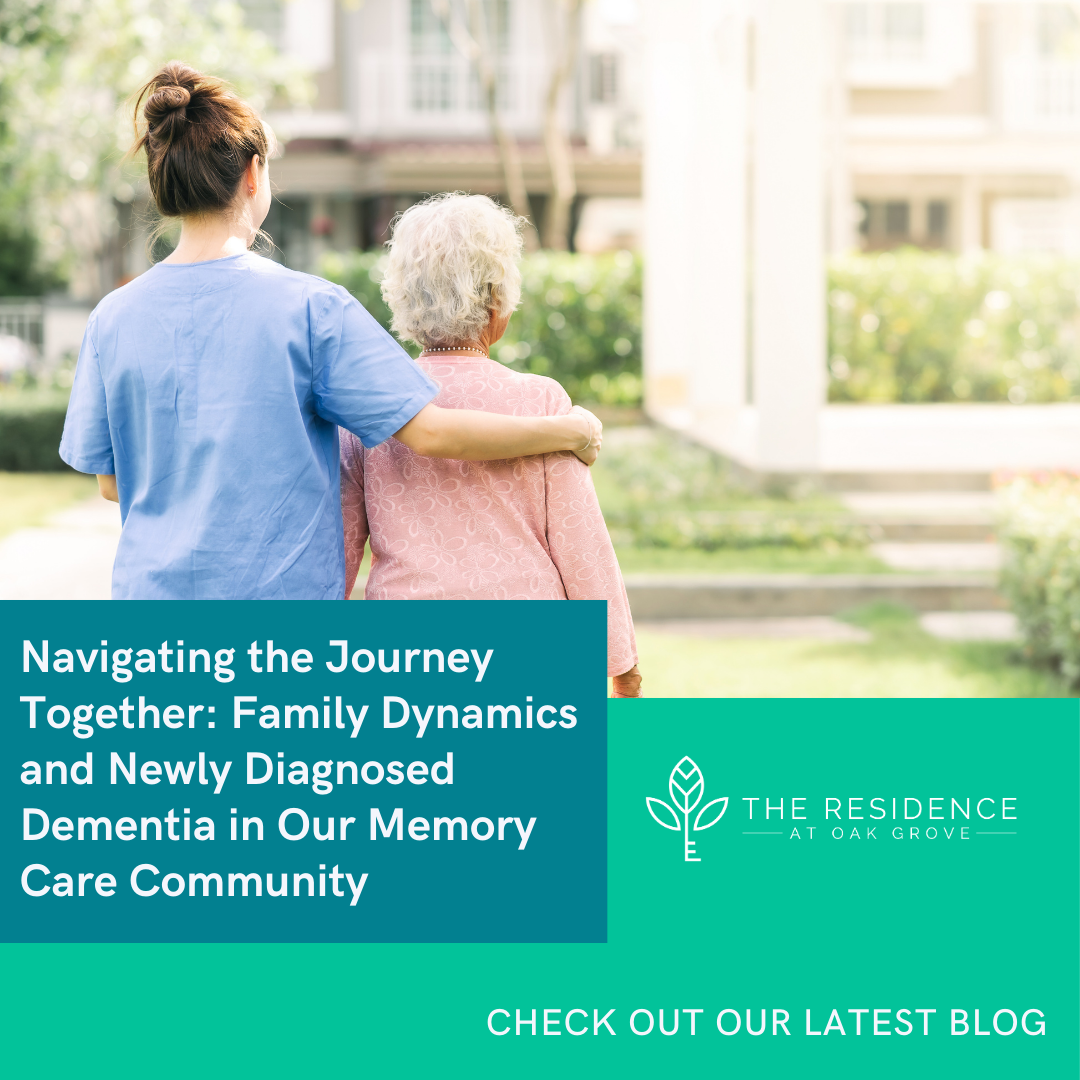As a memory care community dedicated to supporting individuals navigating the complexities of dementia, we…

As your parents or other loved ones start to age, it is hard to know if they are safe alone. There are obvious signs, like increased forgetfulness or cognitive decline, but what about those who are not showing such obvious signs? While less obvious, there are signs that someone you care for should not be living alone.
- Inappropriate behavior or clothing.
Look for your loved one acting out of character; they may be angry more than usual. Maybe they are wearing a sweatshirt when it is 85 degrees outside. Be wary of these signs; there is probably more going on, like mis-management of medication or possibly some underlying issue that needs attention.
Change in shopping habits.
Usually, a change in shopping habits is a large indicator of cognitive decline. This usually looks like buying things they do not need or taking on unnecessary debt. Pay attention to who they are interacting with, especially online, as well. If you notice them talking to unfamiliar people, they may be subject to theft or identity fraud.
Increased isolation.
This isolation may be voluntary or involuntary; either way, social interaction is vital for those of all ages. If your loved one is not interacting with others on a regular basis, it may be time to start developing a strategy that allows them to. This can be hiring a cleaning service to help with chores or getting someone to come over and mow his or her lawn. If there are other issues than increased isolation, though, it may be time to start considering an assisted living facility.
Difficulty getting around, especially in familiar places.
If you are concerned about your loved one living alone, start observing them when you two are together. If they are showing signs of dizziness or trouble with their mobility, like getting up and down the stairs, it may be time for them to have some form of assistance. This is especially important if they are getting confused in their own home or lost in their local grocery store.
Denying obvious problems.
As people age, they become more aware of their loss of independence. This usually leads them to try to cover up problems they are experiencing, like trouble driving or falls they’ve had. They do not want to lose their independence completely no one does. Pay attention to your loved one; if they are having “senior moments” more often than you feel they should, it is likely they do not need to be living completely alone.
Excessively exhausted.
Has your loved one been excessively tired lately? Taking more naps? There is a high chance that this is a sign of more than just being tired; usually, this is a large indicator of some sort of underlying health condition. Maybe they are not sleeping enough? Physical and cognitive function is heavily dependent on sleep. If you have noticed signs of excessive or lack of sleep, encourage them to at least discuss it with their doctor.
Some people are not able to age in place, and that is okay! If you have noticed these signs in your parents or other loved ones, it is probably time to start considering assisted care. We can help. Give us a call to schedule a tour and see if our community is right for your loved one.



